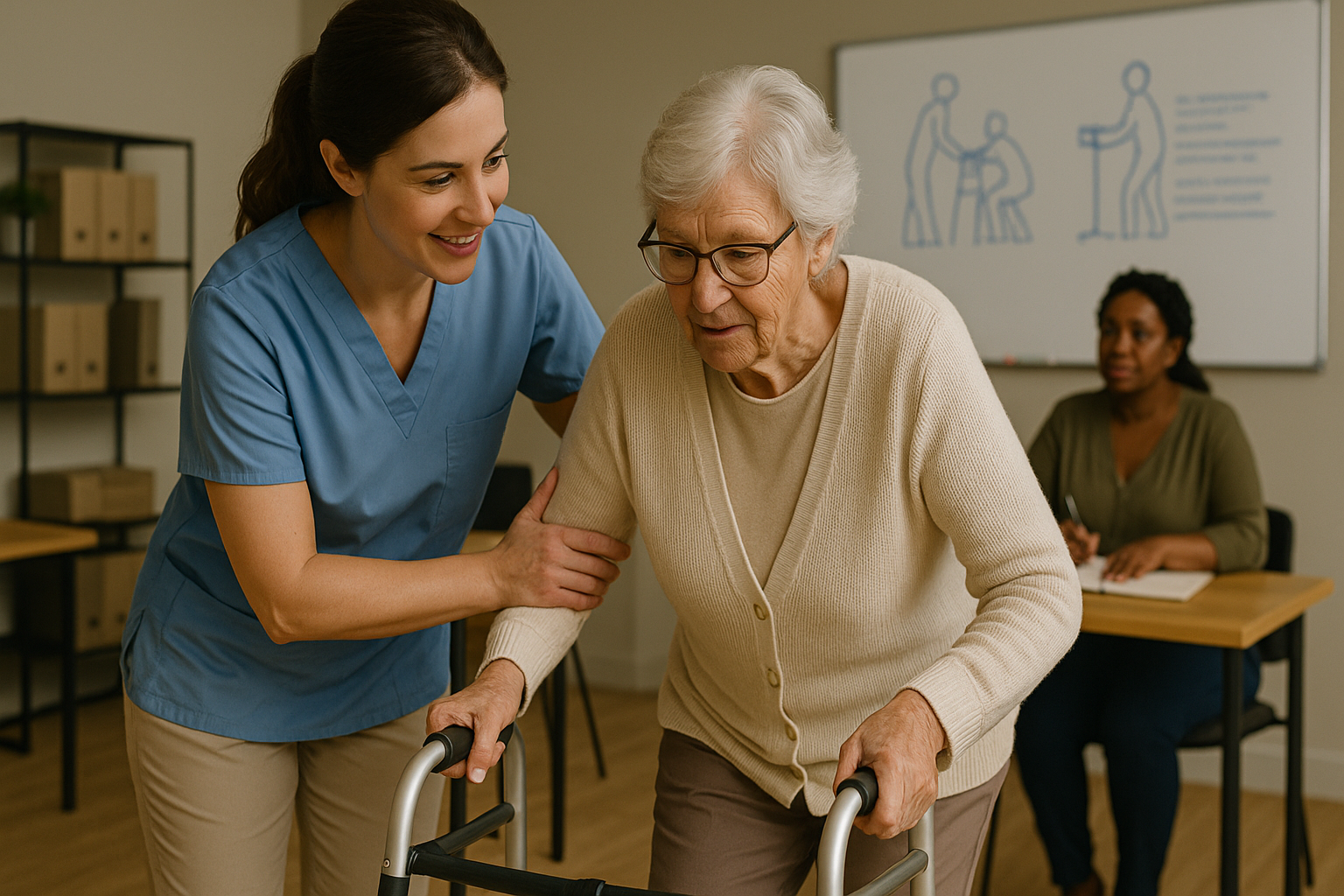Essential Caregiver Training: Skills and Knowledge Every Caregiver Should Have

Essential caregiver training skills
Caring for a loved one or working as a professional caregiver is both rewarding and challenging. From providing physical support to managing emotional needs, caregivers play a vital role in improving the quality of life for those who rely on them. But caregiving is not something you can simply figure out along the way—it requires training, preparation, and a deep understanding of best practices.
Fortunately, a growing number of resources, including free online caregiver training courses, workshops, and certification programs, are now available. These programs not only equip caregivers with practical skills but also build confidence and ensure safer, higher-quality care.
In this article, we will explore the essential skills caregivers need to develop, the importance of ongoing training, and the best ways to prepare for the complex responsibilities of caregiving.
1. Understanding the Role of a Caregiver
Caregiving goes beyond basic tasks. Caregivers are often responsible for:
- Assisting with daily activities like bathing, eating, and mobility
- Administering medications or coordinating with healthcare providers
- Offering emotional support and companionship
- Monitoring changes in health and reporting concerns
Training helps caregivers gain clarity on these responsibilities and avoid feeling overwhelmed.
2. Learning Safe Mobility and Transfer Techniques
One of the most important aspects of caregiver training is learning how to move and transfer individuals safely. Improper lifting can harm both the caregiver and the person receiving care.
- Learn correct body mechanics to prevent back injuries.
- Use assistive devices like gait belts or transfer boards when needed.
- Practice strategies for helping individuals maintain balance.
These techniques reduce fall risks and promote independence.
3. Mastering Medication Management
Many caregivers assist with medication schedules, which can be complex. Training in this area is critical to avoid errors.
- Understand common prescriptions and their side effects.
- Learn proper storage and handling of medications.
- Use tools such as pill organizers or reminder apps.
Accurate medication management ensures safety and supports better health outcomes.
4. Building Strong Communication Skills
Effective communication is key to caregiving. It builds trust and improves care quality.
- Listen actively and show empathy.
- Communicate clearly with doctors, nurses, and family members.
- Adapt language and tone for individuals with cognitive impairments.
Good communication makes caregiving more collaborative and less stressful.
5. Providing Emotional and Social Support
Care is not just physical—it is emotional, too. Caregivers help reduce loneliness and improve mental well-being.
- Offer companionship through conversation or activities.
- Recognize signs of depression or anxiety.
- Encourage social interaction when possible.
Compassion and patience are as valuable as medical knowledge.
6. Managing Nutrition and Meal Preparation
Proper nutrition plays a major role in overall health. Caregiver training often covers:
- Planning balanced meals that meet dietary restrictions
- Assisting with feeding when needed
- Recognizing signs of dehydration or malnutrition
Good nutrition supports recovery, energy, and overall quality of life.
7. Handling Emergencies and First Aid
Unexpected situations happen. Training gives caregivers the tools to respond quickly and confidently.
- Learn CPR and basic first aid.
- Understand how to spot warning signs of medical emergencies.
- Know when and how to call for help.
Preparedness can save lives.
8. Addressing Cognitive and Behavioral Challenges
Caring for someone with dementia, Alzheimer’s, or other cognitive issues requires specialized training.
- Develop techniques to reduce agitation and confusion.
- Practice patience and consistency in routines.
- Use memory aids and activities to stimulate engagement.
These skills help caregivers provide compassionate, effective care.
9. Reducing Caregiver Stress and Burnout
Caregiving is demanding, and burnout is common. Training emphasizes the importance of self-care.
- Set realistic boundaries and ask for help when needed.
- Use stress-management techniques like mindfulness or exercise.
- Explore respite care options for regular breaks.
A healthy caregiver is better equipped to provide quality care.
10. Exploring Free and Accessible Training Resources
Today, many platforms offer caregiver training, including free courses with certificates. These programs cover practical skills and provide recognition for caregivers’ dedication.
- SafetyCulture offers free caregiver courses online.
- FreedomCare provides structured caregiver training and guidance.
- Peer-reviewed studies highlight the effectiveness of structured programs in building confidence and reducing stress.
Accessible training ensures caregivers have the tools they need to succeed.
Conclusion: Training Builds Better Care
Caregiving is a vital and meaningful role, but it comes with responsibilities that require preparation. From safe mobility techniques and medication management to emotional support and stress reduction, training empowers caregivers to provide compassionate, effective care.
Whether you are caring for a family member or pursuing a career in caregiving, investing time in education is one of the best ways to improve outcomes—for yourself and those who depend on you. With the right skills, you can turn caregiving into a rewarding experience filled with confidence, safety, and compassion.
Popular Products
-
 Classic Oversized Teddy Bear
Classic Oversized Teddy Bear$23.78 -
 Gem's Ballet Natural Garnet Gemstone ...
Gem's Ballet Natural Garnet Gemstone ...$171.56$85.78 -
 Butt Lifting Body Shaper Shorts
Butt Lifting Body Shaper Shorts$95.56$47.78 -
 Slimming Waist Trainer & Thigh Trimmer
Slimming Waist Trainer & Thigh Trimmer$67.56$33.78 -
 Realistic Fake Poop Prank Toys
Realistic Fake Poop Prank Toys$99.56$49.78